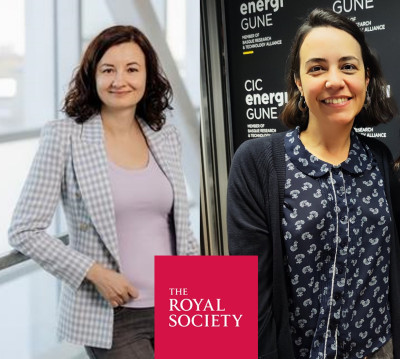News
Royal Society Awarded Project for New Collaboration Between Calgary University and Queen Mary University of London
22 March 2024

Prof Ana Sobrido and Dr Maria Crespo Ribadeneyra from Queen Mary, with Prof Milana Trifkovic from Calgary University, have been awarded a Royal Society International Exchanges grant to conduct research on Bacterial Nanocellulose-based Polymer Composites as Solid Polymer Electrolyte for Metal Ion-Batteries.
Although lithium-ion batteries are widely used in a variety of applications, there are hazards related to the use of highly toxic and flammable electrolytes that require the search of alternative safer compounds.
Most efforts have been devoted to developing solid polymer electrolytes that reduce flammability and prevent lithium dendrite formation, as well as causing decrease in performance and ultimately battery failure.
While it is well known the potential of solid polymer electrolytes, there are still many open questions regarding microstructure – electrochemical performance relationships.
This collaborative project will explore the use of bacterial nanocellulose (BNC) as an additive in solid polymer electrolytes for Li-ion batteries, to enhance mechanical stability and ionic conductivity of a polymer ionic conductor.
Although BNC has previously employed in solid electrolytes, this will be the first work to use electrospinning to control structural and compositional features of the nanocellulose, and hence promote ionic conductivity and mechanical robustness of the polymer.
We will combine the expertise of Prof Trifkovic’s group in solid electrolytes, noninvasive 3D
imaging, rheology, and Prof Sobrido’s work in electrospinning to research the use of bacterial nanocellulose with controlled features via electrospinning as a filler in polymer electrolytes for metal-ion
batteries.
The use of multi-scale characterisation techniques, including electrochemical strain microscopy,
solid-state NMR, microstructural analysis and electrochemical performance will enable a deep insight into the effect of bacterial nanocellulose – polymer interactions on the electrolyte morphology, crystallisation dynamics, ionic conductivity and overall stability of the electrolyte in a Li-ion battery.
| Contact: | Ana Jorge Sobrido |
| Email: | a.sobrido@qmul.ac.uk |
| People: | Ana JORGE SOBRIDO Maria CRESPO-RIBADENEYRA |
| Research Centre: | Sustainable Engineering |




